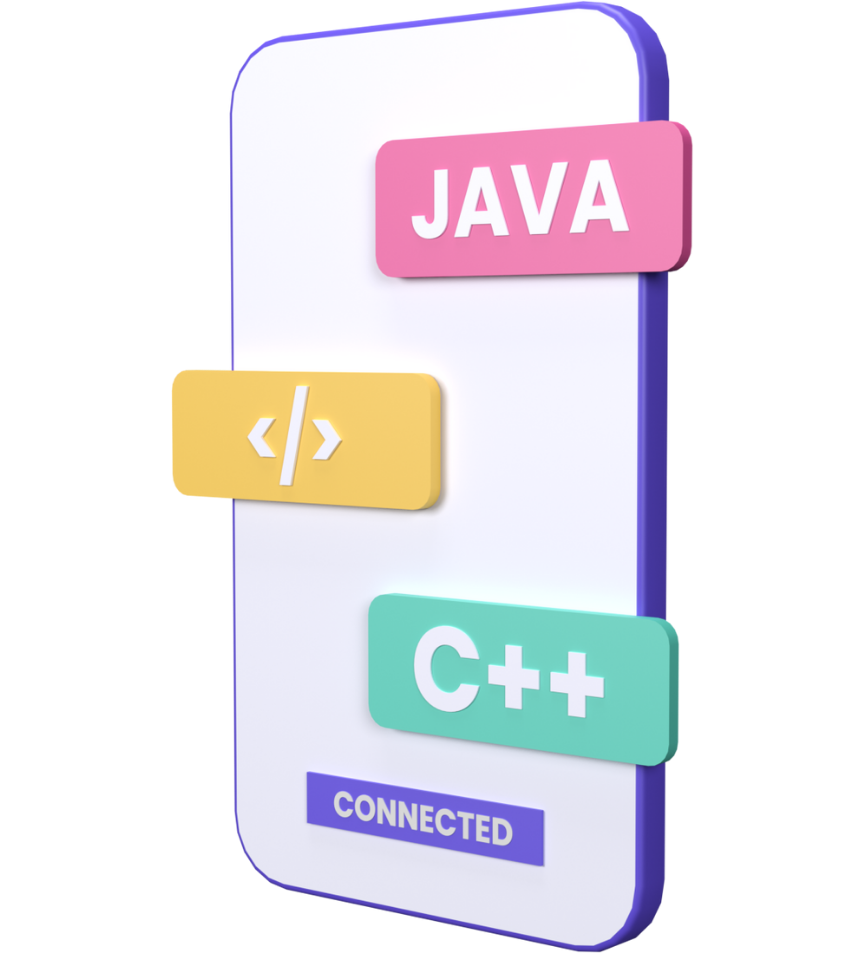Live The Seamless Software Localization Experience
Professional localization team, experienced linguists and thorough testing and quality assurance process
Localize Your Software to Fulfill Your Potential
Our professional team of linguists offers superb localization and quality assurance services.
Unlock the true potential of your software by localizing it for global success. In an increasingly interconnected world, reaching new markets and engaging users from different cultures is essential. Our software localization services ensure that your product resonates with customers worldwide. We adapt user interfaces, menus, and documentation to suit local preferences, providing an immersive experience that speaks their language. Expand your horizons, connect with diverse audiences, and maximize your software's impact with our expert localization solutions.

Professional

All Platforms

Variation
Software Localization for All Platforms and Devices
Ensure a seamless user experience across all platforms and devices with our software localization expertise. Whether it's mobile apps, web-based services, or IoT (Internet of Things) devices, we have the know-how to adapt your software for optimal performance. Our platform-agnostic approach guarantees that your software remains intuitive and functional, regardless of whether it's on iOS, Android, Windows, or macOS. Expand your global reach and deliver a consistent experience on every device with our comprehensive software localization solutions.


Why Choose Atlas for Software Localization?
At Atlas Localization, Our unparalleled expertise, dedication to quality, and customer-centric approach set us apart. With a team of seasoned professionals, we deliver precise and culturally adapted translations, ensuring your software resonates with global audiences. Our commitment to seamless integration, timely delivery, and cost-effective solutions make us the trusted partner for businesses looking to unlock their software's global potential.
Software localization refers to the process of adapting software products or applications to suit the linguistic, cultural, and functional requirements of a target market or locale. It involves translating and modifying the user interface, content, and other software elements to ensure a seamless user experience in different languages and regions. Software localization goes beyond simple translation, taking into account cultural nuances, date and number formats, currency symbols, and other localization-specific elements. By localizing your software, you can effectively engage and connect with users worldwide, enhancing user satisfaction and expanding your global reach.
Software localization is vital. It expands your market reach, engages users in their preferred language and cultural context, and fosters a positive user experience. By adapting your software to different languages and regions, you demonstrate inclusivity, gain a competitive edge, and build stronger customer relationships. Localization breaks down language barriers, enhances user satisfaction, and opens doors to new business opportunities. Embracing software localization is key to unlocking global success and maximizing your software’s impact.
To successfully perform software localization, a systematic approach is essential. The process typically involves several key steps. First, a thorough analysis of the target market and the audience is conducted to identify linguistic and cultural requirements. Next, the software’s user interface, content, and documentation are translated and adapted to suit the target language and locale. It’s crucial to ensure accurate translations while considering cultural nuances and preferences. Additionally, functional and cosmetic adjustments may be made to accommodate local date and number formats, currency symbols, and other region-specific elements. Finally, rigorous testing and quality assurance procedures are implemented to ensure the localized software functions flawlessly. A comprehensive software localization strategy combines linguistic expertise, cultural sensitivity, and meticulous attention to detail to deliver a high-quality, localized product that resonates with users in different regions.
The technical process of software localization involves extracting the content, translating and adapting it, reintegrating the localized content, and conducting thorough testing to ensure functionality and linguistic accuracy. It combines language expertise, software engineering, and quality assurance to deliver a seamless localized software experience. Although the overall process is more or less the same, the details of this technical process vary greatly depending on the software type, since specific types (such as video games) may necessitate a higher focus on the cultural aspect, which can affect the technical aspect as well.
Key aspects of software localization include linguistic accuracy, cultural adaptation, and functional integrity. It involves precise translation and adaptation of content, considering cultural nuances and preferences. Maintaining the software’s functionality and ensuring a seamless user experience are also critical aspects. By addressing these key elements, software localization achieves accurate communication, cultural relevance, and user satisfaction.
The advantages of software localization are numerous. It enables access to new markets, expands customer reach, and increases user adoption. By speaking users’ language and adapting to their culture, it enhances user satisfaction and builds trust. Localization showcases a commitment to global markets, sets you apart from competitors, and boosts brand reputation. Additionally, it facilitates clear communication, reduces support requests, and drives customer loyalty. Embracing software localization brings a host of benefits, including global growth, improved user experience, and a competitive edge.
Game localization is possible for any games, but some of them are way better when they are localized. Many story-driven games such as RPGs (Role Playing Games) and AAA action games are prime targets. It’s also important to localize casual sports games. Simulation and strategy games are other ideal targets for localization.